Why is cacao bitter?
A 2006 paper concludes that the bitterness of cocoa is due to a mixture of chemicals: theobromine and methyltheobromine (caffeine), diketopiperazines, flavan-3-ols, N-phenylpropenoyl-L-amino acids, flavonol glycosides, aminobutyric acids, and some organic acids. A complex mix that makes debittering cacao so difficult. Article at: Molecular definition of the taste of roasted cocoa nibs, and an earlier paper by the same authors, Sensory-guided decomposition of roasted cocoa nibs.
The main debittering process - the "Dutch process"
The standard technique for debittering cacao is called the "Dutch process", in honor of the inventor of the process, Coenraad Van Houten, who in 1828 discovered that combining alkaline salts with cocoa powder reduced the acidity of natural cocoa, which typically ranges between a pH of 5.0 to 6.0 (see Acid-Base Chemistry below), leading to a less bitter and less sour cacaos and chocolate. But one problem was discovered years later - the Dutch process in reducing cacao's acidity also reduced the levels of medically beneficial flavonols. A popular alkaline salt used today is potassium carbonate, which has a pH which ranges between 11 to 13. An excellent discussion of the Dutch process can be seen in: Alkalizing cocoa and chocolate, by Arlen Moser of Blommer Chocolates. Despite such debittering technologies, 50% of all chocolate in the world today is sugar, a very effective but very toxic debittering agent.
How easy is it to debitter cacao with coca leaf extracts?
Easy to do in your kitchen!!! Brew one or two bags of coca tea in a cup of hot water - brew for at least 3 to 4 minutes. An average of 3 minutes suffices when using ENACO's Delisse coca tea (Peru). The amount of brewing time depends on the species of coca leaf used, and the region it is grown in, which affects the level of alkaloids in the leaf.
Mix in two tablespoons of unsweetened Hershey's Cacao (or any non-Dutch processed cacao powder such as "Cacao en Polvo" from EcoAndino of Peru (www.ecoandino.com). Stir. Drink.
The bitterness is eliminated while preserving chocolate taste, aroma and color.
Fácil de hacer en su cocina!!! Haga una infusión de uno o dos bolsas de mate de coca - haga la infusión durante al menos tres a cuatro minutos.
Agregue dos cucharadas de cacao de Hershey sin azúcar. Agitar. Beber.
El amargor es eliminado del todo, conservando gran parte del color, aroma y sabor del chocolate.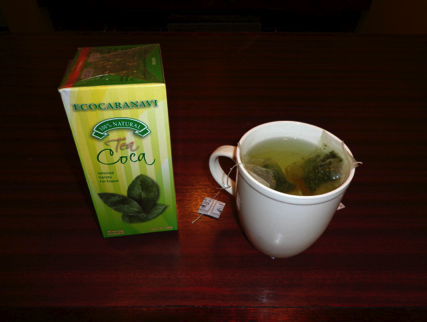
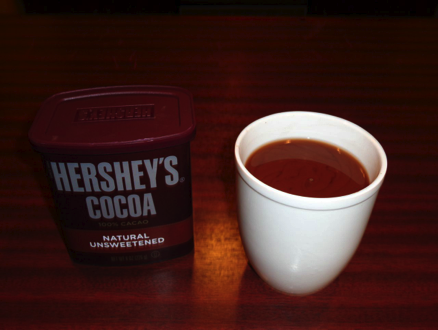
Using FDA-approved decocainized coca extracts
This debittering process also works using coca leaf extracts from which the main coca alkaloid (benzoylmethylecgonine - BME) has been (mostly) removed (CocaCola uses similar extracts for its CocaCola sodas) - a weight ratio from 0 to 0.00001 of BME to cacao. This is great news for the chocolate industry, because decocainized coca leaf extracts are legal for use in consumer food products around the world. For example, in the United States, by law, decocainized coca leaf extracts are Generally Recognized As Safe (GRAS) for use in food products. See U.S. Federal Regulation 21 C.F.R. 182.20
The government of Peru has a state agency, Empresa Nacional de Coca (ENACO - www.enaco.com.pe), that is ready to ship samples and production quantities of decocainized coca leaf extracts to chocolate businesses around the world. Please contact them now. KukaXoco is working with ENACO to identify the best coca leaves in South America to best de-bitter cacao.
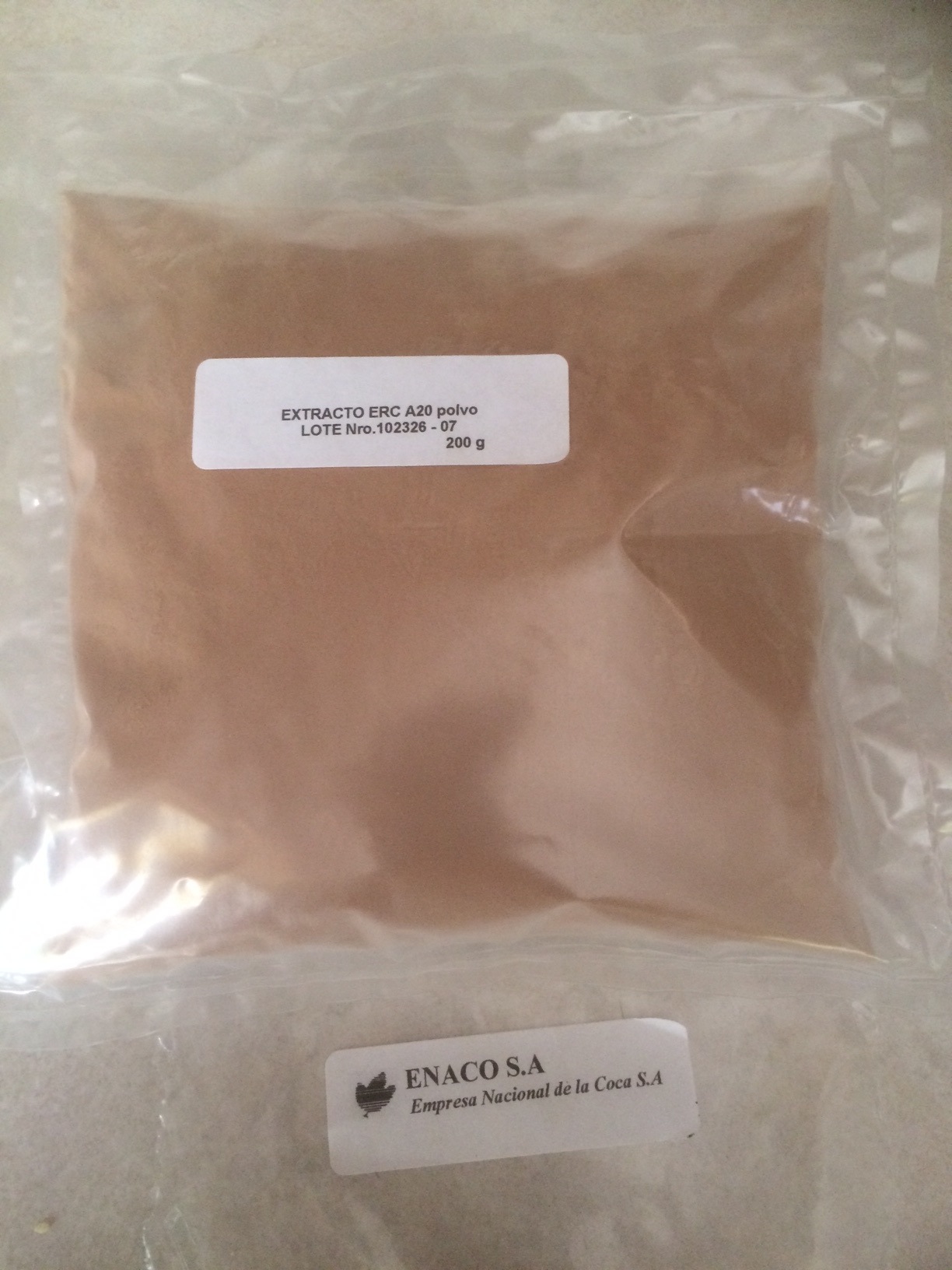
ENACO Decocainized Coca Powder

2 tbsps. cacao powder
1 (to 2) tsps. ENACO powder
smidgen salt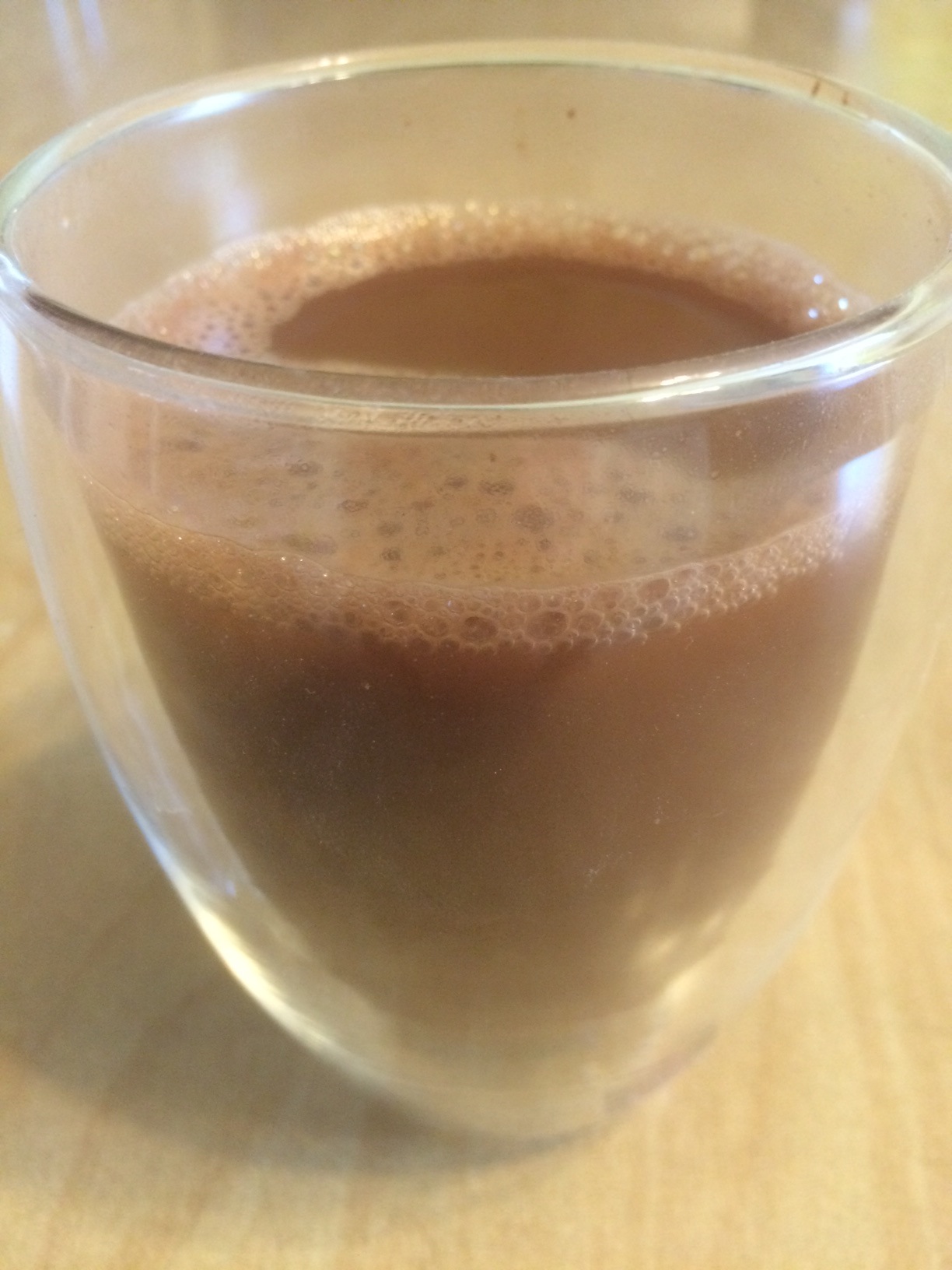
Result? Sugar-free Hot Chocolate!!!!
The Chemical Engineering faculty of the National University of San Marcos in Lima, Peru (the oldest university in the Americas, and one of the top two universities of Peru) has prepared a chemical analysis of ENACO's decocainized coca leaf extracts, documenting the complete absence of the the internationally-controlled cocaine alkaloid, making these extracts safe and legal for immediate use by the chocolate industry. A copy of their chemical analysis is at: CocaAnalysisCocaExtract.pdf (original in Spanish), and at CocaAnalysisCocaExtract.pdf (translation in English). This analysis can be used as part of the documentation to import decocainized coca leaf extracts without having to register with the U.S. DEA as an Importer of Controlled Substances. A similar chemical analysis has been prepared for ENACO's instant coca tea that is decocainized, available at: CocaAnalysisCocaTea.pdf. The Ministry of Health/Salud of Peru has approved these dococainized extracts as exportable without permit, in agreement with Article 27 of the 1961 U.N treaty on narcotic drugs. A copy of this permit is available at: CocaExtractExportPermit.pdf (original in Spanish), and at CocaExtractExportPermit-E.pdf (translation in English).
Companies such as CocaCola that use decocainized coca leaves as flavoring in their beverage products, obtain their coca leaves from Stepan Company (New Jersey). ENACO supplies Stepan with pure coca leaves. Stepan extracts the coca alkaloid for sale to pharmaceutical companies, while selling the decocainized coca leaves to CocaCola and others for use in making beverages. Stepan is registered with the U.S. DEA as an Importer of Controlled Substances. Such registration is not needed to import decocainized coca leaf extracts from ENACO.
The USAID office in Lima, is working with cacao farmers and authorized coca leaf growers in Peru, and with agencies such as ENACO and with the national cacao organization - APPCACAO, to help them bring their products to global markets. For background country information on Peru's cacao and coca industries, please contact the USAID mission in Lima (https://www.usaid.gov/where-we-work/latin-american-and-caribbean/peru).
El proceso para el des-amargado del cacao es efectivo con extracto de hoja de coca descocainizado - sin benzoilmetilecgonina (BME) (semejante al extracto que usa Coca Cola) - una proporción de peso a partir 0 a un 0.0001 de BME al cacao. Esta es una muy buena noticia para la industria chocolatera ya que el extracto de hoja de coca descocainizado es globalmente legal para su uso en la industria alimenticia. Por ejemplo, por ley, en los Estados Unidos el extracto de hoja de coca descocainizado es Reconocido Como Seguro según las regulaciones de dicho país (Generally Recognized As Safe - GRAS).
El gobierno del Perú cuenta con un organismo constituido para toda operación legal (farmacéutica o alimenticia), la Empresa Nacional de la Coca: ENACO. Esta empresa es disponible para abastecer con muestras de extracto de coca descocainizado con capacidad de remitirlas cualquier país. Usted puede contactarlo directamente. KukaXoco esta trabajando coordinadamente con ENACO para identificar las variedades de hoja de coca con las propiedades que tengan el mayor potencial para des-amargar el cacao.
La facultad de Ingeniería Química de la Universidad Nacional Mayor de San Marcos en Lima, Perú (la universidad mas antigua de las Americas y una de las dos principales del Perú) ha realizado los análisis químicos del extracto de coca descocainizado producido por ENACO. Este ha documentado la inexistencia de cocaína, sustancia bajo control internacional, en el referido extracto, asegurando la seguridad del mismo para su uso inmediato en la industria chocolatera y otros potenciales. Una copia del análisis químico realizado puede ser encontrada en: CocaAnalysisCocaExtract.pdf. Este análisis puede ser utilizado como parte de la documentación requerida para importar extractos descocainizados de hoja de coca sin necesidad de registrarlo como Importador de Sustancias Controladas con la US DEA. Un análisis químico similar ha sido preparado por la Empresa Nacional de la Coca - ENACO - para su infusión instantánea de coca descocainizada. Una copia del análisis químico realizado puede ser encontrada en: CocaAnalysisCocaTea.pdf. El Ministerio de Salud del Perú ha aprobado estos extractos descocainizados, dandole el carácter de producto exportable sin necesidad de permisos especiales, conforme el artículo 27 del Tratado de narcóticos de las Naciones Unidas de 1961. Una copia de este permiso puede ser encontrada en: CocaExtractExportPermit.pdf.
Empresas tal como la Coca Cola que usa el extracto descocainizado de las hojas de coca en sus bebidas refrescantes, obtienen el extracto de la empresa química Stepan Company (New Jersey), importadora autorizada de hoja de coca. Stepan extrae la cocaína, la que luego la comercializa a empresas farmacéuticas, y vende el extracto descocainizado a Coca Cola y posiblemente a otras industrias que utilizan este. Stepan Company si esta debidamente registrada con la US DEA como Importador de Sustancias Controladas, pero esta licencia no es necesaria para quien importe directamente el extracto descocainizado.
Con la Asociacion de Productores de Cacao del Perú (APPCACAO) se puede acceder a los productores de las diversas variedades de cacao originarias del Peru, y sus productos hoy se exportan al mercado mundial. Para mayor información sobre la producción de cacao y coca en el Peru también pueden contactar a la agencia de USAID en Lima.
Cacao Bitterness and Acid-Base Chemistry
As mentioned above, the two main approaches to debittering cacao (which is acidic with a pH level between 5 and 6) is either large amounts of toxic sugar (neither acidic or alkaline, with a neutral pH level of about 7) or a salt such as potassium carbonate (which is alkaline with a pH level between 11 and 13). The "Dutch process" for debittering cacao using alkaline salts, while reducing bitterness by reducing the acidity of the cacao also reduces the levels of beneficial chemicals in the cacao, such as the flavonols (flavonols tend to be unstable at pH levels above 7, while epi-catechins tend to be unstable at pH levels above 6).
What follows is a table of acid-base pH levels of various ingredients in, or use to make, chocolate. A nice article on the effect of pH and aroma of bittersweet chocolate is available at: Effect of pH and distillate volume on monitoring aroma quality of bittersweet chocolate (Food Quality and Preparation, v.14, 2003).Distilled water with a pH of around 7.1 was used. The pH measurements were made with a Hanna Instruments pHep pH/Temperature Tester (HI98128), and the results are accurate to within +/- 0.2 pH. Acidities tend to increase (i.e., the pH level decreases) as the temperature of the solution rises. This is seen below for both coca teas and cacao in hot/cold water. See, for example, The effects of temperature on pH measurement.
An article on this acid-base data and the acidity of cacao was published in the November 2016 issue of Kennedy's Confections. The article is available at: Cacao - The Acid Test!
Ingredientes pH Preparation / Source Potassium carbonate (K2CO3)
(used in Dutch process, e.g.,
3 parts by weight with nibs)11 Internet - 10.5 - 11.5 (depending on concentration) Ammonia (NH3 - amoníaco/amônia) solution
(listed here only for comparison)11 10.5 - 11.5 Sodium Propionate (C3H5NaO2)
(mold inhibitor - chocolate products)7.5 - 9.5 Typically added as 1 part in a 1000 Coconut oil (Skinny & Co.) 7.3 doesn't use heat extraction Cacao-free chocolate flavor/sabor 7.0 - 8.5 Gen. Foods: U.S. Patent 2,835,593 (1957)
(whole milk and sodium hydroxide [pH = 11.0 - 12.0],
digested by pancreatin at 47 °C)Cacao/cacau powder/polvo/pó (Dutch processed) 7.0 Internet - 8.0 for "black" cacaos Water (agua) 7.0 7.0 is neutral/neutro Chocolate syrup (calcium fortified) 5.0 - 8.0 Hershey: U.S. Patent 7,829,127 (2005) Hershey "Special Dark" Unsweetened Cacao
(cacao/cacau sin/sem azúcar/açúcar)
(mix of natural and Dutch processed cacao)6.90 2 tablespoons in 1 cup of room temperature water
(pH measured at temperatura of 22 °C)Chocolate milk/leche/leite (Nestle Nesquik)
(with salt and calcium carbonate [pH = 9.9])6.85 measured/medido at/a/em 22 °C
(22 grams sugar per 240 mL)Whole milk (leche/leite entera/inteiro) 6.7 FDA puts range at 6.4 - 6.8
(12 grams sugar per 240 mL)Chocolate-substitute, yeast-based 6.5 - 6.7 Coors Food: U.S. Patent 4,312,890 (1980) Cacao butter (manteca/manteiga de cacao/cacau) 6.6 Lees & Jackson [1973] Milk chocolate (con/com leche/leite) 6.3 - 6.7 Nestle: U.S. Patent 4,081,568 (1976)
(uses trisodium phosphate [pH = 11.5 - 12.5])Milk chocolate (con/com leche/leite) 6.5 Internet consensus/consenso "Modica" chocolate (Sicily) 5.7 - 6.9 Int J Food Sci - 2011 - with vanilla and cinnamon Mold growth which can affect chocolate products 4.5 - 6.8 Andes Spirit "Machu" (Pe) coca tea/té/chá; (1 bag) 6.35 brewed 3 minutes in 1 cup of hot water
(pH measured at temperatura of 75 °C)Embajada de Coca (Co) tea/té/chá (1 bag) 6.30 brewed 3 minutes in 1 cup of hot water
(pH measured at temperatura of 73 °C)Andes Spirit "Machu" (Pe) coca tea/té/chá (2 bags) 6.29 brewed 3 minutes in 1 cup of hot water, air cooled
(pH measured at temperatura of 24 °C)Andes Spirit "Machu" (Pe) coca tea/té/chá (2 bags) 6.05 brewed 3 minutes in 1 cup of hot water
(pH measured at temperatura of 72 °C)Wawasana "Madre Coca" (Pe) tea/té/chá (1 bag) 5.95 brewed 3 minutes in 1 cup of hot water, air cooled
(pH measured at temperatura of 25 °C)Andes Spirit "Machu" (Pe) coca tea/té/chá (1 bag) 5.85 brewed 3 minutes in 1 cup of hot water, air cooled
(pH measured at temperatura of 17 °C)Wawasana "Madre Coca" (Pe) tea/té/chá (1 bag) 5.72 brewed 3 minutes in 1 cup of hot water
(pH measured at temperatura of 72 °C)Andes Spirit "Machu" (Pe) coca tea/té/chá (1 bag) 5.53 brewed 5 hours in room temperature water
(pH measured at temperatura of 22 °C)Inka Verde (Pe) coca tea/té/chá (1 bag) 5.44 brewed 3 minutes in 1 cup of hot water, air cooled
(pH measured at temperatura of 21 °C)Inka Verde (Pe) coca tea/té/chá (1 bag) 5.40 brewed 3 minutes in 1 cup of hot water
(pH measured at temperatura of 72 °C)Novo Andino Oruro (Bo) coca tea/té/chá (1 bag) 5.20 brewed 3 minutes in 1 cup of hot water
(pH measured at temperatura of 68 °C)Cacao beans, unfermented (no/não fermentado) 6.1 - 6.3 Univ. Ghana 2013 study Hershey Unsweetened Cacao (sin/sem azúcar/açúcar) 5.85 2 tablespoons in 1 cup of room temperature water
(pH measured at temperatura of 23 °C)Hershey Unsweetened Cacao (sin/sem azúcar/açúcar) 5.70 2 tablespoons in 1 cup of hot water
(pH measured at temperatura of 72 °C)Cacao powder/polvo/pó 5.7 Int. Cocoa Org. (ICCO) data
Cacao powder/polvo/pó 5.0 - 5.8 CCBOL Group, others 5.3 - 5.7 Cacao nibs (red/purple) 2.0 - 5.0 Barry Callebaut: U.S. Patent 8,460,739 (2008) ENACO coca powder (2 teaspoons) 5.5 - 5.6 1 cup of boiling water
(pH measured at temperatura of 75 °C)ENACO coca powder (2 teaspoons) 5.35 1 cup of room temperature water
(pH measured at temperatura of 22 °C)Coca leaf/hoja/folha extracto/extrato (powder) 5.1 ENACO (Peru) - July 2016 study Cinnamon/canela (Sundown Naturals capsule) 5.4 1 gram powder in 240 mL water at 23 °C Black coffee 5.1 Internet consensus puts range at 5.0 - 5.5 Black tea 4.9 Internet consensus Chocolate-flavored yogurt (yogur/iogurte) 4.7 - 5.3 General Mills: U.S. Patent Application 2006/0068075 (2004) Chocolate beverages (iron fortified) 3.5 - 6.5 Procter & Gamble: U.S. Patent 5,670,344 (1966) Cacao butter - fruit flavored 3.5 - 5.5 U.S. Patent App. 2012/071567 (2011) Chocolate-flavored frozen milk 3.0 - 4.5 U.S. Patent 6,423,359 (2000) Juice/jugo/suco of/de limon/limão 2.2 - 2.8 Internet consensus
(tolerably drinkable v. bitter cacao in water @ pH=5.8)
Brands of coca tea you can use
Marcas de té de coca que se peuden utilizar
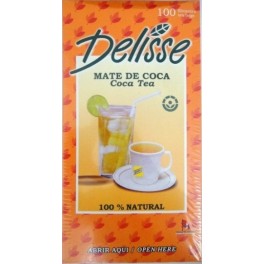
ENACO's Delisse Coca Tea (Peru) -
www.enaco.com.pe/?p=865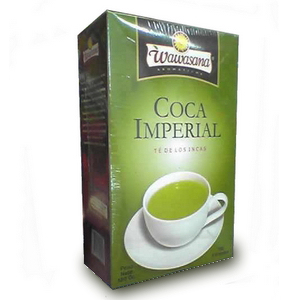
Wawasana Coca Tea (Peru) -
www.wawasana.com.pe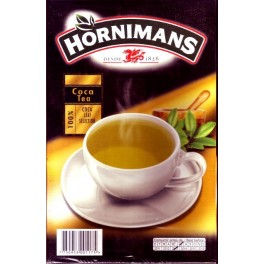
Horniman's Coca Tea (UK/Peru) -
www.hornimans.com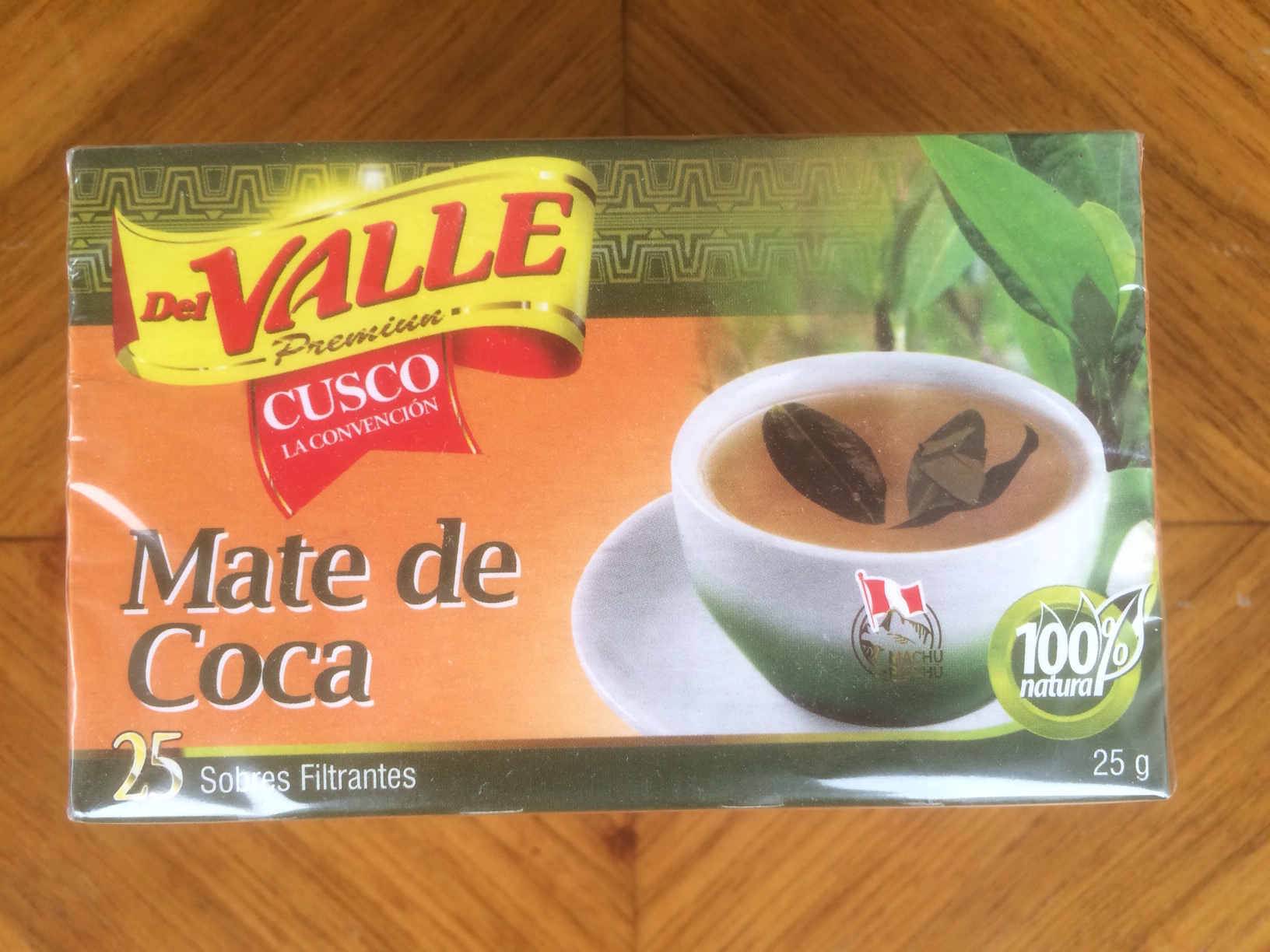
Del Valle Coca Tea (Peru) -
www.delvallehuyro.com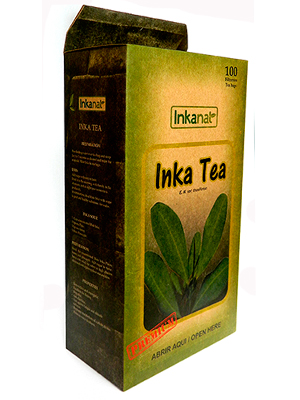
Inka Coca Tea
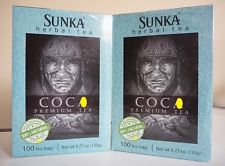
Sunka Coca Tea (Peru) -
www.sunkatea.com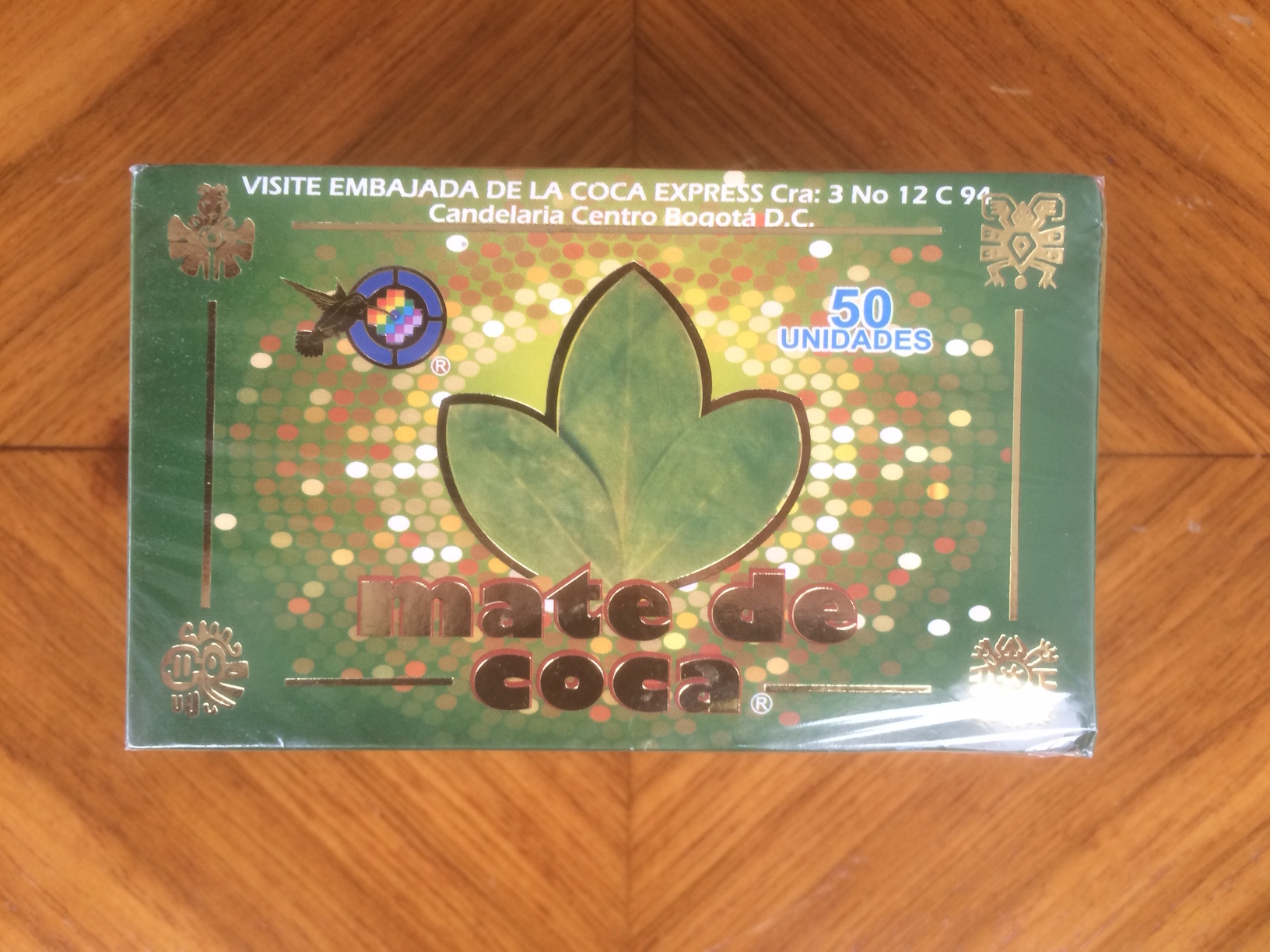
Embajada de la Coca - Coca Tea (Colombia) -
www.embajadadelacoca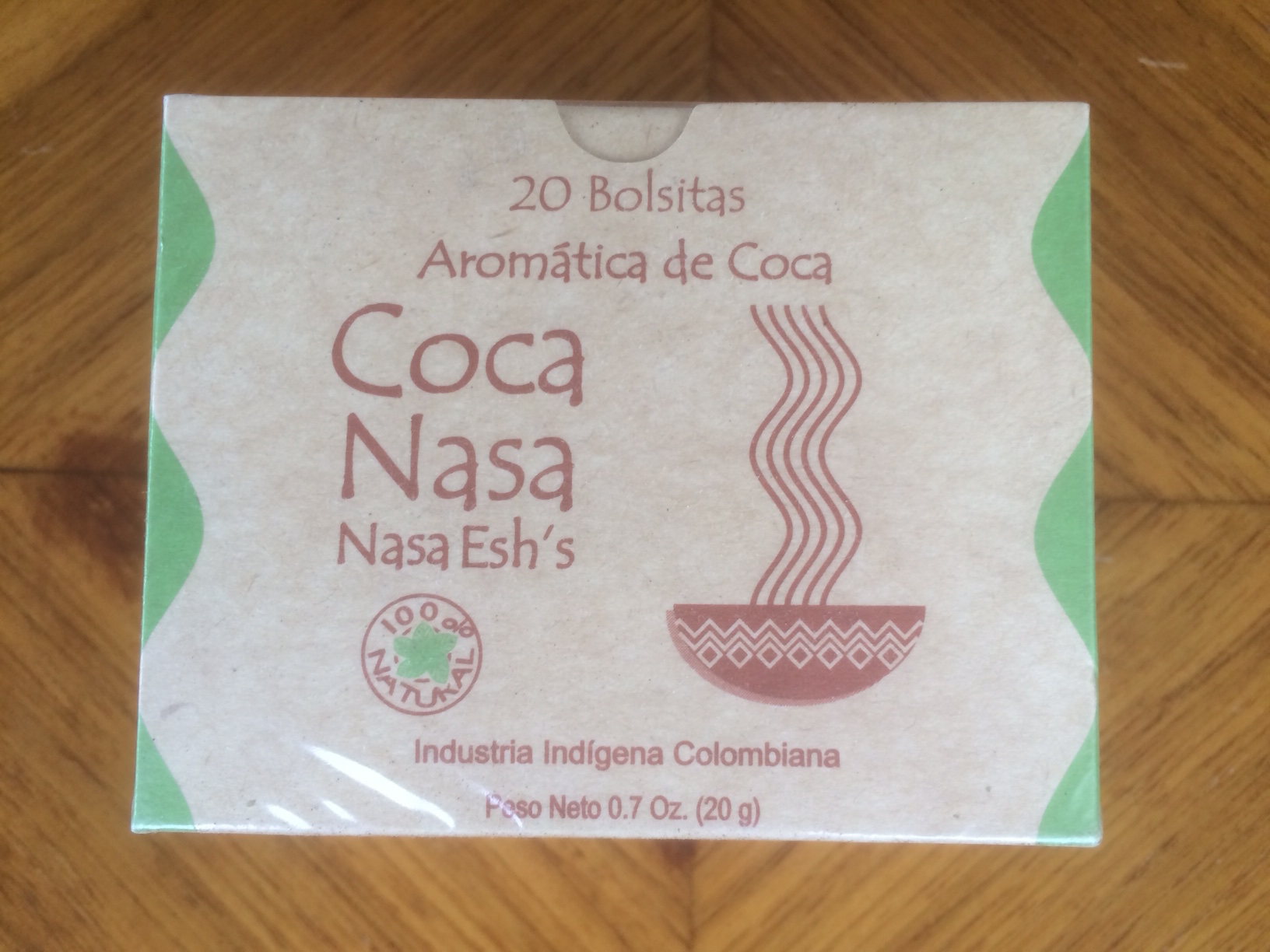
CocaNasa Coca Tea (Colombia)
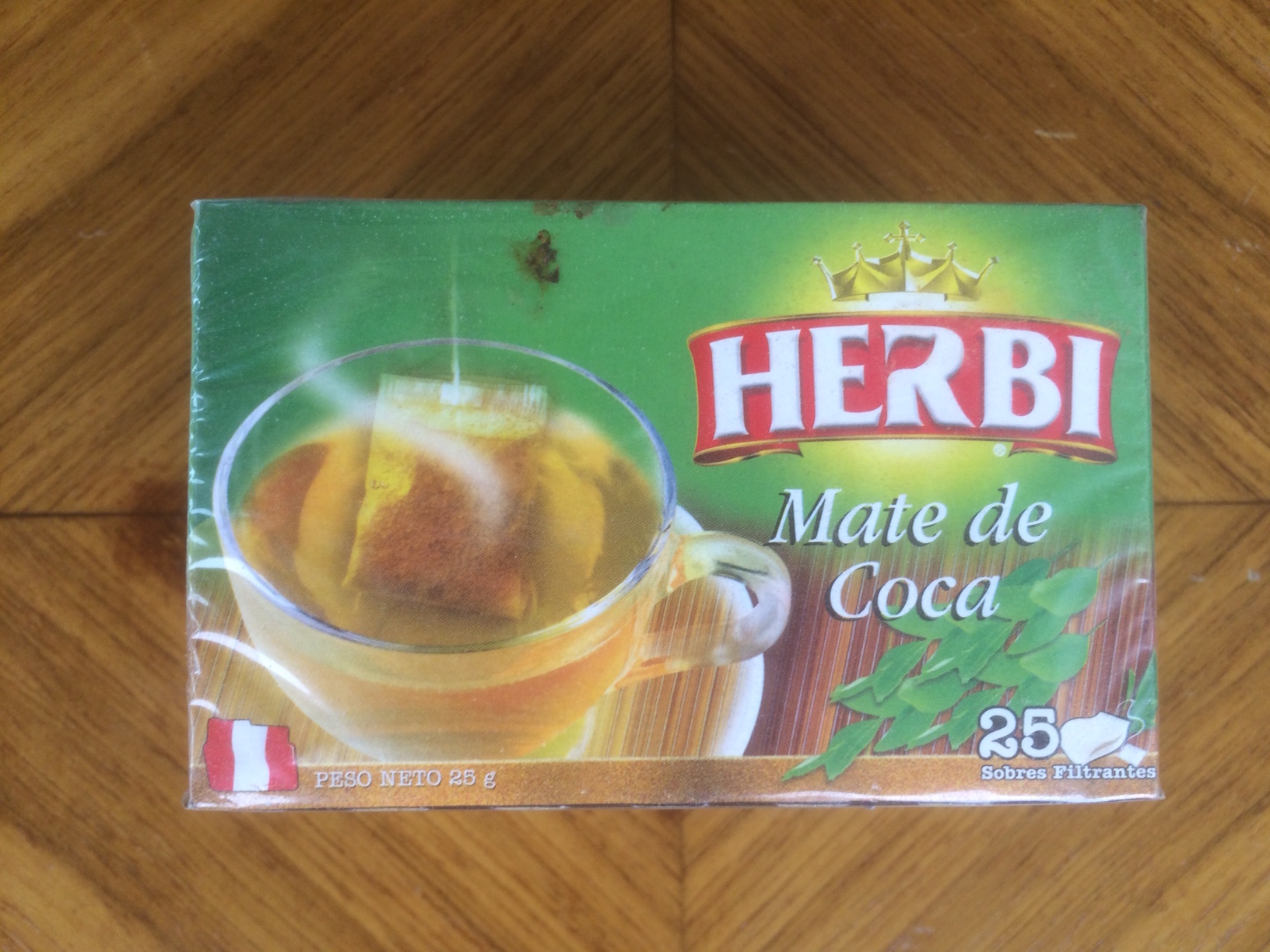
Herbi Coca Tea (Peru)